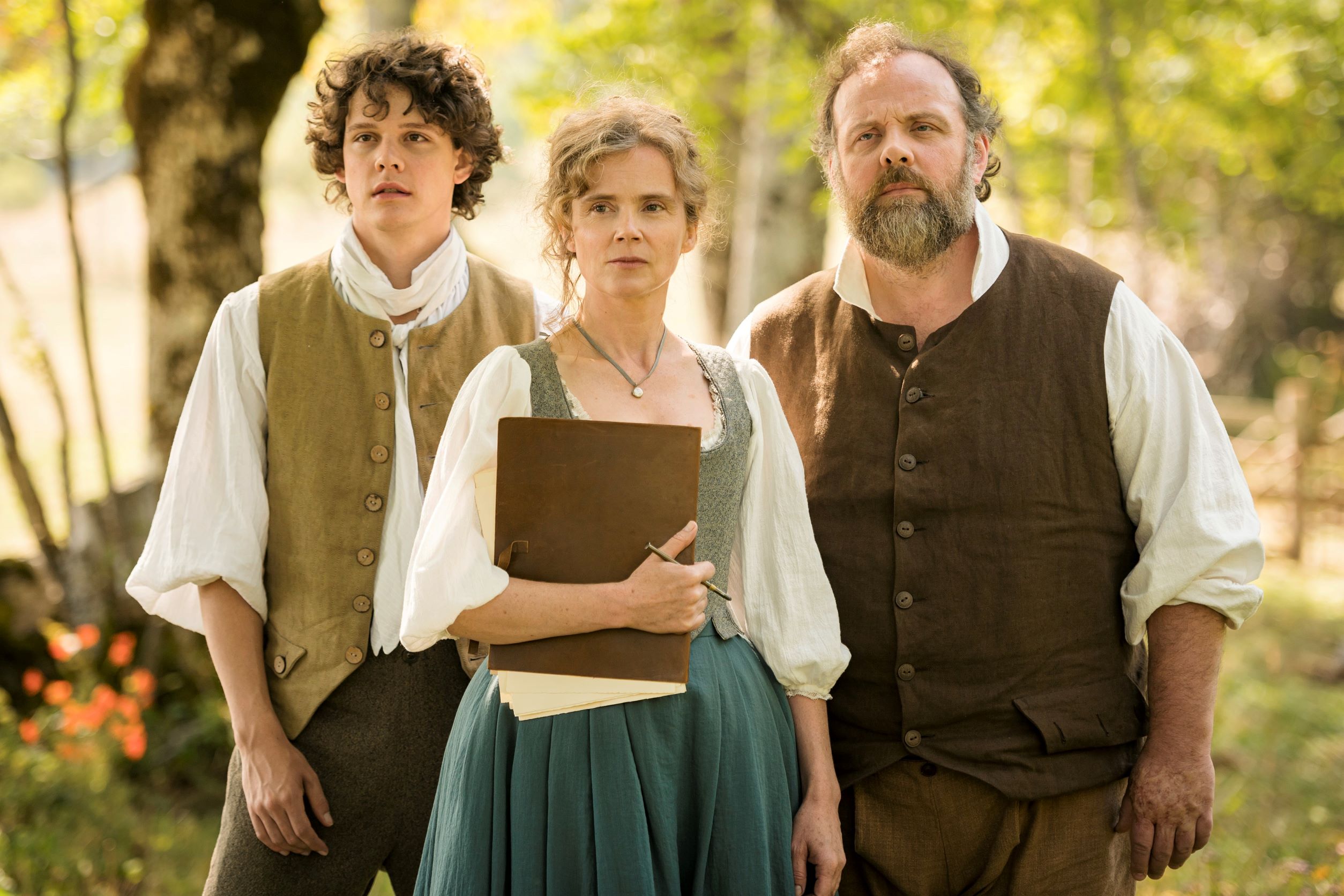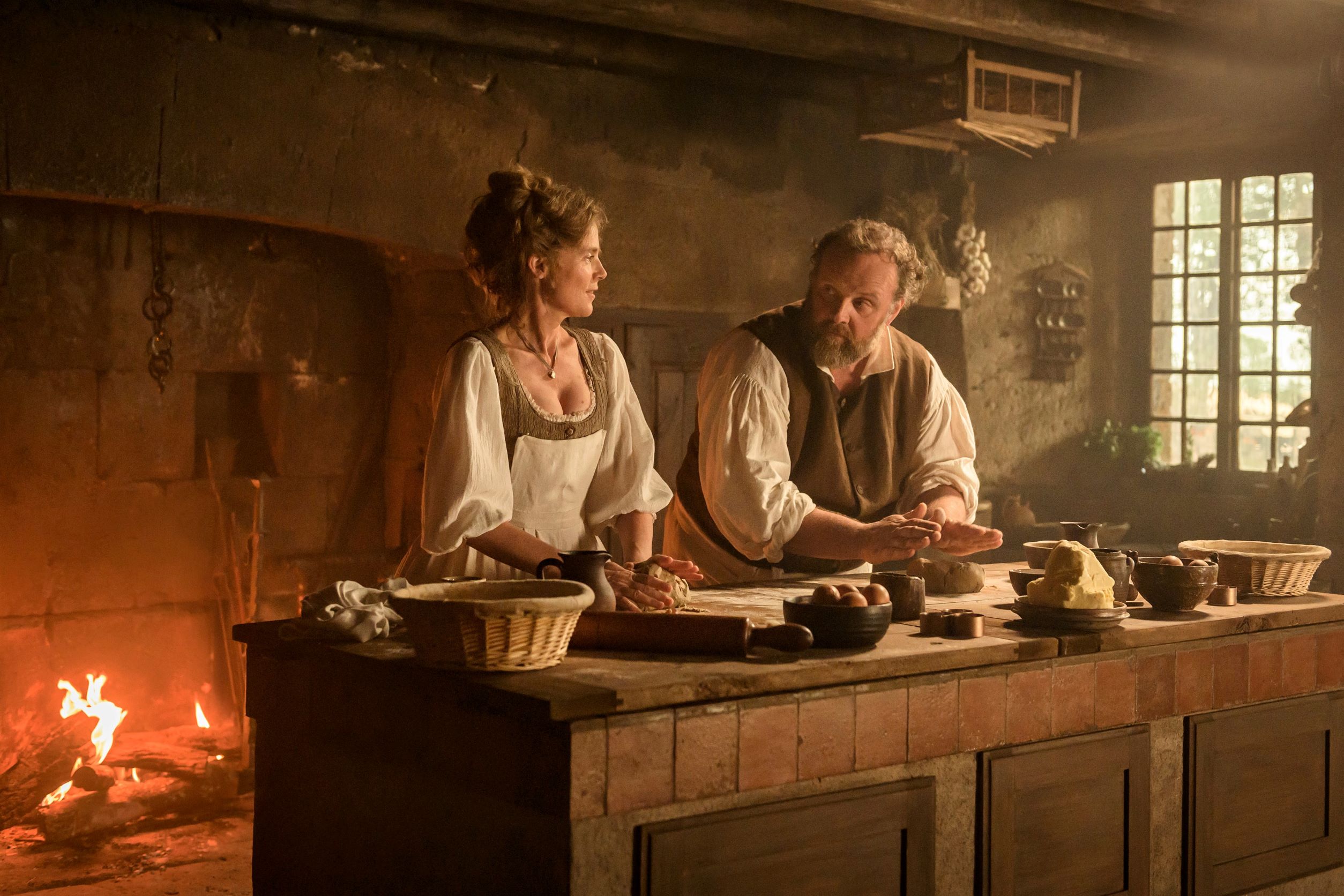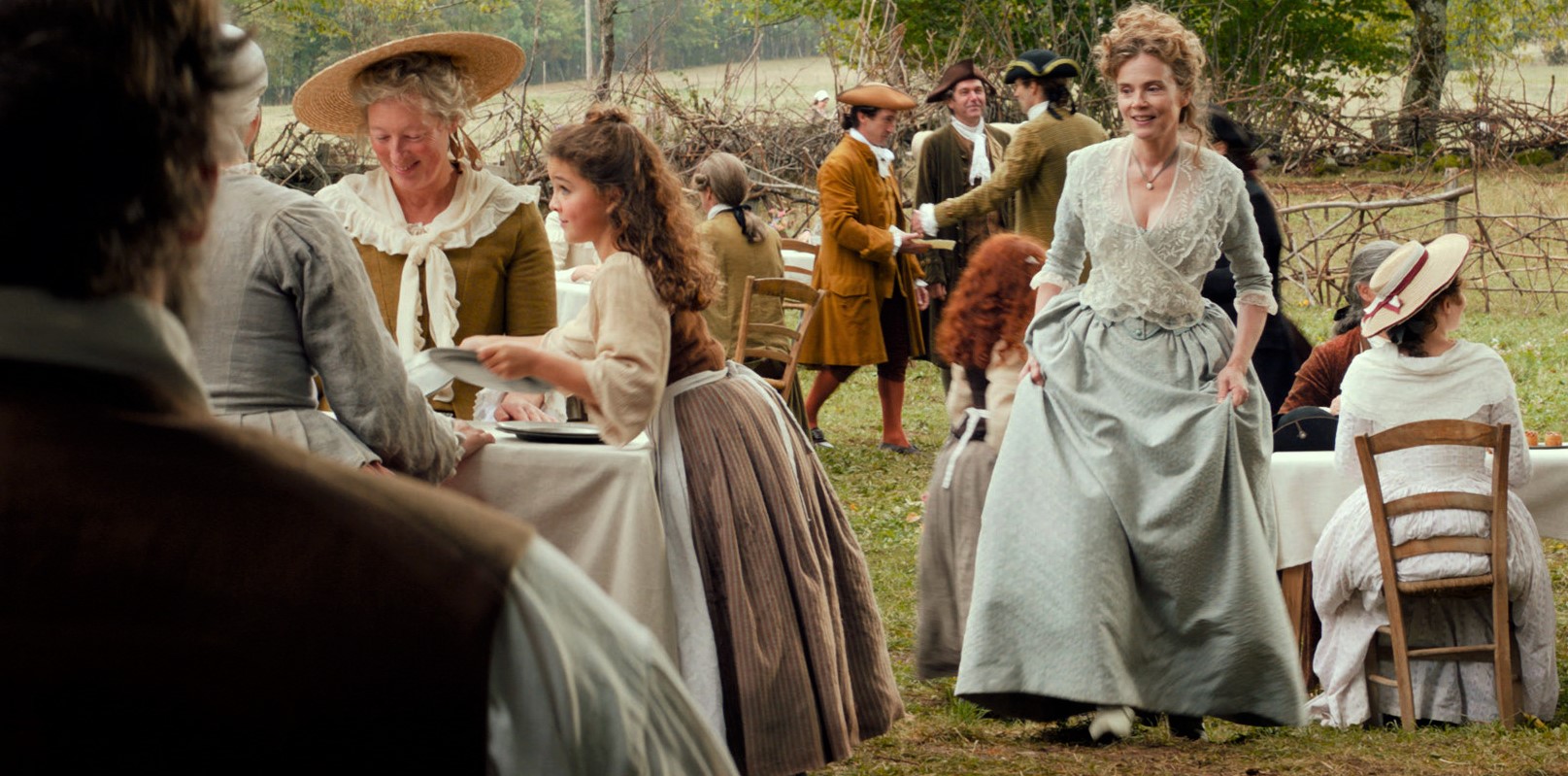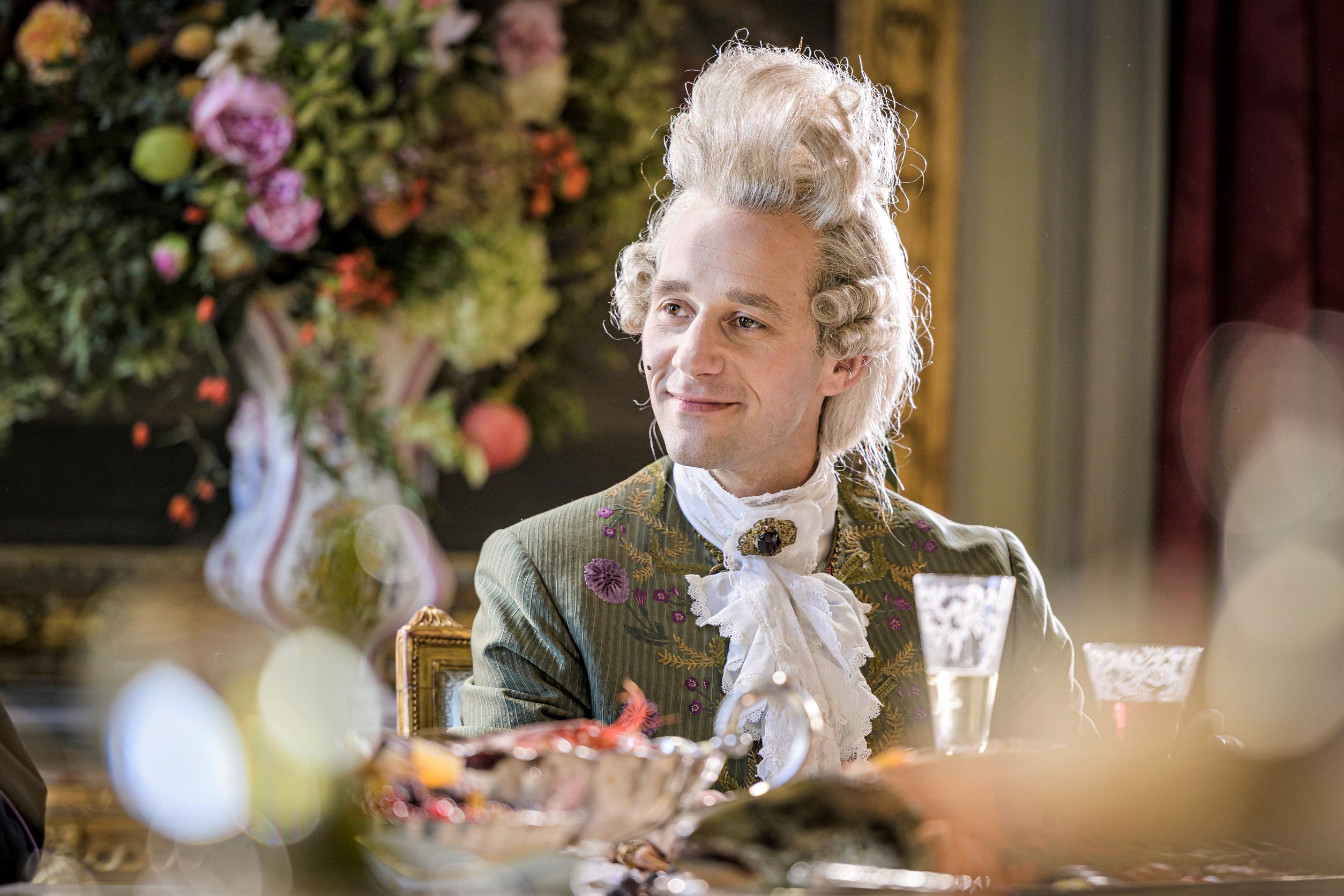I skipped the film Délicieux (Delicious) at the most recent French Film Festival, thinking it would be just another food porn extravaganza, a kind of MasterChef France or Le Meilleur Pâtissier (the French equivalent of The Great Australian Bake-Off) for the big screen. Besides, the food in the trailer looked too perfect. Surely they didn’t cook food like that in the 18th century! At last not in a humble barn.
By the time it started its Australian run at Palace Cinemas just after Christmas, however, I was hungry for a big dollop of French film. And, I’m glad to say, Delicious proved to be a sumptuous, very satisfying cinematic experience. Writer-director Éric Besnard’s film is loosely based on the establishment of the first restaurant in France. I say loosely only because he sets Delicious in the countryside instead of Paris. But he employed a team of culinary historians and advisers to replicate the cooking methods and utensils on the set, and it’s the historical background that gives the film its depth.
Set in 1789 shortly before the French Revolution, the film starts with an astoundingly lavish feast that head cook Pierre Manceron (Grégory Gadebois) has prepared for his employer, the Duke of Chamfort (Benjamin Lavernhe – Antoinette’s love interest in the French Film Festival hit Antoinette in the Cévennes). The Duke’s influential guests are mightily impressed.
A feast fit for a king, but not the clergy
However, Manceron turns the culinary success into a diplomatic disaster when he adds one of his creations, Le Délicieux (a potato and truffle turnover) to the menu. The guests are scathing, none more so than the only clergyman present, who throws his plate to the floor, declaring it fit only for pigs.
The arrogance is shocking, the behaviour vile. But Besnard isn’t necessarily having a dig at the church.
“In the 18th century, the cook was someone who was asked to reproduce dishes; certainly not to invent any,” he says. “Manceron therefore disobeyed by offering one of his creations, but he committed a more serious crime: that of having cooked products growing underground. The church believed that everything that came from it was not only not edible but also proved to be the carrier of diseases such as leprosy. The potato and the truffle were considered products of the devil.
“At this time, the nobility and clergy still believed in a heavenly scale of food. The more aerial they are, the more divine they
are; a pigeon, that’s perfect, a cow, closer to the ground, is less good …”

Let the culinary revolution begin! Benjamin (Lorenzo Lefebvre), Louise (Isabelle Carré) and Manceron (Grégory Gadebois) ponder what to put on the menu.
The plot twists ….
Manceron stubbornly refuses to apologise and is fired. He retreats to a rarely frequented inn in the countryside where he slumps into lethargy and depression. But spurred on by a mysterious visitor, Louise (Isabelle Carré), who pays him to become his apprentice, and by his son Benjamin (Lorenzo Lefebvre), who has revolutionary ideals, he sets up France’s very first restaurant.
The restaurant’s reputation grows, and it does a roaring trade. Soon a messenger arrives to announce that the Duke of Chamfort will pay it a visit. Manceron has to put on a meal so good that the Duke will hire him again. With his humble utensils and in the humble surrounds, can he pull it off?
I knead you
Delicious has some rather far-fetched side dishes (sub-plots), including a blossoming romance between Pierre and Louise, and someone (I won’t say who) who plans to poison the Duke. And when you poison food, there’s always the danger that the wrong person will eat it. The film picks up pace, with nail-biting energy.
The most fascinating aspect is how France’s first restaurant was created, bringing with it revolutionary ideas – people of different classes eating under the one roof. Besnard had to take some liberties with the historical truth, to keep the story succinct.
Licentious beginnings
The real first restaurant’s birth, says Besnard, “spanned more than 15 years and the first restaurant to see the light of day dates from 1782. It was partly to Turgot, Louis XVI’s controller general of finance, that it owes its appearance, thanks to the abolition of corporations and the liberalisation of trade put in place to lower prices and try to curb the economic crisis that is hitting the country. From 1776, merchants, until then confined to the marketing of a single product, could now sell several at the same time.
“The desertion of the nobles who, feeling the wind of revolution blowing, emigrate, leaving their cooks on the floor – added to the ideas of equality advocated by the philosophers of the Enlightenment – will do the rest. At the beginning, they are mainly caterers, then someone has the idea of a tablecloth, another for the menu, for the buffet … And, to stay in the historical truth, it is in Paris, at the Palais Royal, that this movement was really born, as well as the first establishment.
Customers come to eat there with prostitutes from the neighbourhood. It’s very licentious at the time.”
However, Besnard chose to set the restaurant in the countryside, rather than in the nation’s capital. “The France that interests me is that of the land,” he says. The restaurant scenes are shot in an old barn (its doors had not been opened for 150 years, according to Isabelle Carré) in Cantal in central France.
The frivolity of the nobility
As for the class war, you can’t help being on the side of the peasants. None of the upper-class characters in the film are likeable. Dressed in their refinery at the Duke’s banquet, they seem ridiculously effete and foppish.
“The nobles of the day were bored, ” says Besnard. “They no longer have a political function since the end of the reign of Louis XIII and the beginning of that of Louis XIV. They no longer have a military role – there is no more war. They only have the right words (it’s “Ridicule/Ridiculous”, by Patrice Leconte), debauchery (it’s “Que la fête commence/Let the party begin”, by Bertrand Tavernier), and gastronomy – which is what my film tells of.
“We are all about appearance – rings, wigs, banter – the cook has become an ornament, a pledge of wealth and pomp. These nobles have no real culture, they are not interested in ideas of progress and do not see that history is moving.”
They are in for a shock. Besnard notes: “At the time of the film [1789], the price of wheat is reaching levels never seen in a century. People are hungry, discontent is mounting, and they will start to take to the streets. The 18th century was marked by hunger riots.” For all the scrumptious-looking food on screen, the most palatable part of Délicieux is seeing the nobles get their comeuppance. M5R
Photos courtesy of and © Palace Cinemas.



